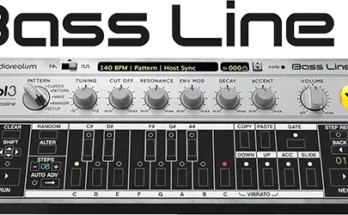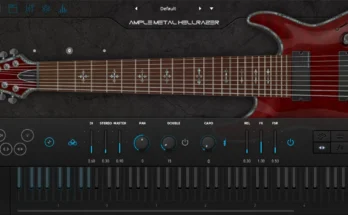
Overview of Audiolens: Audiolens is a desktop application designed to simplify the process of finding and comparing audio tracks by analyzing audio from various streaming platforms or audio sources. It allows users to build a personal library of reference tracks that can be accessed anytime for comparison with their own mixes or masters.
Features of Audiolens:
- System Requirements: Windows 10, 11
Description of Audiolens: The Audiolens desktop app offers a convenient way to find and compare audio tracks. Users can analyze audio from streaming platforms or other sources by playing the chosen audio through their device’s selected output. The app collects key audio characteristics, enabling users to visualize, compare, and contrast their favorite reference tracks and sounds.
Users can save the tonal data of their reference tracks in an Audiolens target library, creating a personal catalog of reference track data for easy access. They can name their tracks to quickly identify the sounds they want to match and easily compare tonal balance profiles. The target library integrates with Ozone 10/11 and Neutron 4, automatically linking to those plugins if they are installed.
How to Use Audiolens with OZONE 10/11: Audiolens seamlessly populates the saved reference targets in your Ozone 10/11 target library. This allows you to visualize how your master compares to your chosen reference tracks. You can also use the AI-powered Master Assistant to match the tone, dynamics, and width profiles of your desired track with your own master. Additional settings can be adjusted using the Assistant View.
How to Use Audiolens with NEUTRON 4: Audiolens automatically integrates your saved reference targets into your Neutron 4 Target Library, where they are analyzed by the Neutron Assistant. This enables you to quickly match characteristics in your own track’s mix, whether it involves enhancing the bass, snare, or hi-hat. You can further customize your audio using the assistant to fine-tune the elements of your mix.
Use of Reference Tracks in Music Production: Producers and engineers rely on reference tracks throughout music production, mixing, and mastering. Reference tracks serve as a means of comparing the dynamic range and character of their songs to those of the same genre and style to achieve the desired sound. Reference tracks are valuable for conveying the desired sound in a mix or master recording and for developing a musical vocabulary that aids in effective communication during collaborative work on songs.



